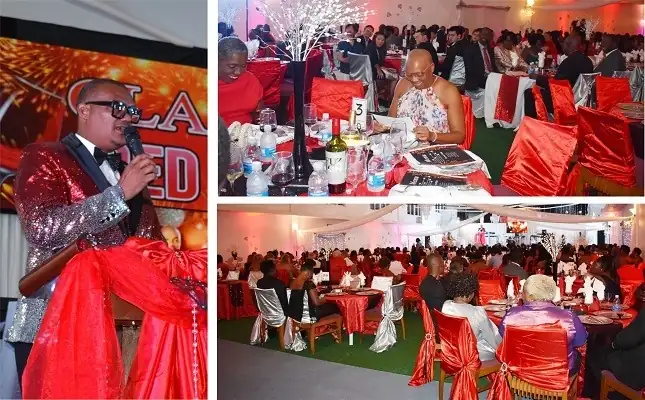READ HERE: SKNRA RoboMindset Summer Camp Engineering Notebook Criteria 2023
St Kitts and Nevis Robotics Association (SKNRA) has recently shared SKNRA RoboMindset Summer Camp (STEAM Approach) Engineering Notebook Criteria 2023.
17th of July 2023

Basseterre, St Kitts and Nevis: St Kitts and Nevis Robotics Association (SKNRA) has recently shared SKNRA RoboMindset Summer Camp (STEAM Approach) Engineering Notebook Criteria 2023.
As per the update by the SKNRA, the criteria for the Creation of an Engineering Notebook for Students in the SKNRA RoboMindset Summer Camp (STEAM Approach):
1. COMPREHENSIVE DOCUMENTATION: The engineering notebook should contain comprehensive documentation of the entire design and development process, Integrating science, technology, engineering, arts, and mathematics (STEAM) components. It should showcase the camper’s journey from initial ideas to the final design and implementation of their robotics projects.
2. ORGANIZATION AND STRUCTURE: The notebook should be well-organized and structured in a logical manner, making it easy for readers to follow the camper’s progress. Dividing it into sections such as “Inspiration” (Arts), “Design” (Engineering), and “Building” (Technology). “Programming” (Technology), “Testing” (Science), and “Reflections” can be helpful.
3. DATE AND TIME STAMPING: All entries in the notebook should be accurately dated and stamped. This helps demonstrate the camper’s adherence to the camp’s timeline and highlights the progression of their work.
4. CLEAR AND DETAILED SKETCHES: The notebook should include clear and detailed sketch diagrams and CAD drawings of the robot design and any relevant mechanisms. These visual 3 provide better insights into the camper’s thought process and design iterations, incorporating elements of art and creativity.
5. COMPREHENSIVE DESIGN DESCRIPTIONS: Each major design decision and modification should be accompanied by a thorough explanation, considering both technical aspects (engineering and technology) and artistic elements (arts). Campers should articulate wiry they chose special approaches, highlighting the reasoning behind their design choices.
6. PROTOTYPE DEVELOPMENT: Document the development of prototypes and their evaluation. Describe what worked and what didn’t and how the campers iteratively improved the design based on the results, incorporating scientific analysis and artistic refinements.
7. TESTING PROCEDURES AND RESULTS: Record the methods used for testing the robotics functionality and performance and reduce quantitative and qualitative data from these tests illustrating the effectiveness of the robot’s design and any modifications made in response to testing results, with scientific rigour and artistic considerations.
8. INNOVATIVE SOLUTIONS AND CREATIVITY: Highlight any innovative solutions or unique ideas incorporated into the robot’s design. Creativity is an essential aspect of engineering, and tests should be well-documented in the notebook, integrating artistic expressions.
9. TEAM COLLABORATION: Showcase effective teamwork, collaboration, and division responsibilities within the campers. Emphasize how each camper contributed to different aspects of the robotics project, fostering an environment where diverse skills, including artistic talents.
10. CHALLENGES AND PROBLEM-SOLVING: Document challenges faced during the design and process. Describe how the campers overcame these challenges, as well as any lessons learned from the process, utilizing both analytical thinking and creative problem-solving skills.
11. REFLECTIONS AND IMPROVEMENTS: Encourage the Inclusion of reflections on the campers’ performance, strengths, weaknesses, and areas for improvement. This shows the camper’s ability to critically evaluate their work and strive for continuous enhancement, incorporating scientific analysis and artistic self-expression.
12. LEGIBILITY AND NEATNESS: The notebook should be legible, well-written, and neatly presented. It’s essential to communicate ideas effectively and professionally, including artistic aesthetics in the notebook’s presentation.
13. EVIDENCE OF LEARNING: The notebook should demonstrate the camper’s learning experience incorporating knowledge from science, technology, engineering, arts, and mathematics (STEAM) fields and other related disciplines.
14. ETHICS AND SPORTSMANSHIP: Emphasize ethical considerations, integrity and sportsmanship throughout the notebook. Showcase how the campers collaborated with others, treated fellow campers with respect, and demonstrated a positive and supportive attitude, embodying their values in their artistic expressions as well.
Latest
- Grenada’s Sun, Sea and Soca Carnival set for Carriacou this Sunday
-
Michael Gladden faces attempted murder charges for 2020 shooting in Belize City -
Dominica: Dainisha Eusebe crowned Miss Dominica 2026 at Carnival City -
St Kitts’ Marsha Henderson takes OECS Tourism Chair, calls for greater regional integration -
Regional Leaders congratulate PM Mia Mottley on third consecutive election victory in Barbados
Related Articles

4th of December 2024

8th of December 2024


27th of November 2024

26th of November 2024


25th of November 2024

17th of November 2024
